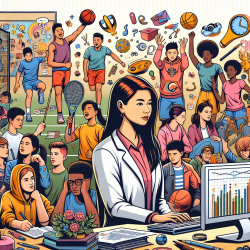Introduction
In the realm of global health, partnerships between academic institutions and healthcare providers in low- and middle-income countries (LMICs) are pivotal. These collaborations aim to bridge healthcare disparities by leveraging resources and expertise from high-income countries (HICs). However, these partnerships often mirror the inequalities they seek to address. The research article "Power, potential, and pitfalls in global health academic partnerships: review and reflections on an approach in Nepal" offers insights into creating effective and equitable partnerships. This blog explores how practitioners can implement these findings to enhance their skills and improve outcomes for children through online therapy services.
Key Findings from the Research
The study examined a partnership between the Ministry of Health in Nepal, the non-profit healthcare provider Possible, and the Health Equity Action and Leadership Initiative at the University of California, San Francisco. It assessed the partnership using the Tropical Health and Education Trust Principles of Partnership framework. The key findings include:
- Aligning the perspectives of patients and public sector providers with those of expatriate physicians is crucial.
- Equity in wealth and power gaps within global health partnerships can be achieved through targeted strategies.
- Engagements with academic medical centers should be prioritized to meet both national and host institution goals.
- Efficient organizational workflow practices are essential for sustainable partnerships.
Practical Applications for Practitioners
Practitioners in speech-language pathology and online therapy services can draw valuable lessons from this research to enhance their practice:
- Embrace Cultural Sensitivity: Understanding the cultural context of the communities you serve is vital. Tailor your therapy approaches to respect cultural differences and leverage local strengths.
- Foster Collaborative Relationships: Build strong partnerships with local educators and healthcare providers. This collaboration can enhance the delivery of online therapy services and ensure that interventions are contextually relevant.
- Utilize Data-Driven Approaches: Implement evidence-based practices and continuously assess the effectiveness of your interventions. Use data to refine your strategies and improve outcomes for children.
- Advocate for Equity: Work towards reducing disparities in access to therapy services. Advocate for policies that support equitable access to online therapy for all children, regardless of their geographical location.
Encouraging Further Research
While the study provides valuable insights, further research is needed to explore the long-term impacts of global health partnerships on speech-language pathology and online therapy services. Practitioners are encouraged to engage in research initiatives that evaluate the effectiveness of these partnerships in improving child outcomes. Collaborating with academic institutions and participating in interdisciplinary research can contribute to the development of innovative and sustainable therapy models.
Conclusion
Global health partnerships hold immense potential to transform healthcare delivery in LMICs. By implementing the principles outlined in the research, practitioners can enhance their skills and contribute to equitable and effective therapy services. As we strive to create great outcomes for children, let us continue to learn from successful partnerships and work towards a future where every child has access to the therapy they need.
To read the original research paper, please follow this link: Power, potential, and pitfalls in global health academic partnerships: review and reflections on an approach in Nepal.










